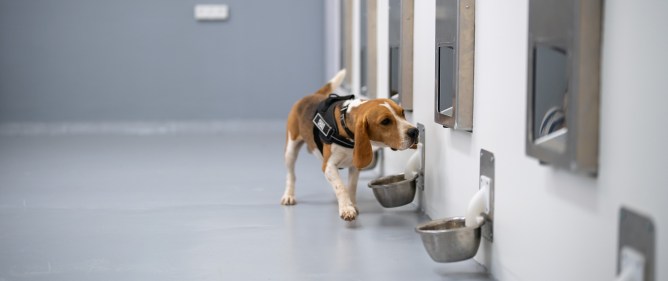Developing comprehensive screening for early-stage cancer is the key to saving the most lives. Although multi-cancer early detection tests are still being researched and lack FDA approval, several are commercially available for consumers who are willing to pay out-of-pocket. Individuals can ask their doctor to order the Galleri blood test from Grail, or they can opt for a whole-body MRI from companies like Prenuvo or Ezra, which often cost two thousand dollars or more.
Soon, consumers will have another and rather unique way to screen for multiple types of cancer. SpotitEarly, a biotech company that is a part of Startup Battlefield at TechCrunch Disrupt 2025, is developing an at-home cancer test that analyzes human breath using dogs’ exceptional sense of smell combined with artificial intelligence.
SpotitEarly CEO Shlomi Madar told TechCrunch that the science is increasingly clear: dogs can be trained to sniff out diseases, and especially cancer, in humans. He noted that there are also ad hoc reports from people who mention that their companion dogs sensed that something was wrong with them way before they were diagnosed.
Drawing on his fifteen years of experience as a health and biotech leader, Madar joined three friends, one of whom is a former K9 unit commander, to develop a reliable method and technology for cancer screening by analyzing breath samples. Users can screen for cancer simply by collecting an at-home breath sample and shipping it to SpotitEarly’s lab. The company employs eighteen trained beagles to discern cancer-specific odors. The dogs are taught to sit if they smell cancer particles, and SpotitEarly’s AI platform validates the dogs’ behavior.
Madar explained that they have cameras on top of the lab, a microphone that captures the dogs’ breathing patterns, and they also monitor the dogs’ heart rates. He stated that the machine learning knows the baseline of the entire dog pack, and that is what makes it more accurate than just a handler looking at a dog.
The company’s research, published in Nature’s Scientific Reports, showed that its trained dogs can detect early cancer in breath samples with ninety-four percent accuracy. That double-blind clinical study, involving one thousand four hundred individuals, was focused on screening for the four most common cancers: breast, colorectal, prostate, and lung.
SpotitEarly, which was founded in Israel in 2020, announced in May its launch into the United States market with twenty point three million dollars in funding from Hanaco VC, Menomedin VC, Jeff Swartz, the former CEO of Timberland, and Avishai Abrahami, the CEO of Wix.com. The company plans to use the capital to significantly expand its clinical studies, starting with individual tests for breast cancer before moving on to the other three targeted cancers.
Madar said that SpotitEarly’s at-home screening kits should be available to consumers through a physicians’ network next year. A single cancer test will be priced at around two hundred and fifty dollars, and screening for each additional cancer will cost a fraction of the first test. To prioritize accessibility, the company aims to price its multi-cancer panel below the cost of competitors like Grail’s Galleri test, which typically runs for about nine hundred and fifty dollars.
As for the dogs, Madar said they are a part of the team. He stated that all employees at the company must be dog people, and that the company does not just use the dogs as biosensors. The dogs have plenty of room to play, and Madar described them as great sneakers, great workers, but also great companions.

